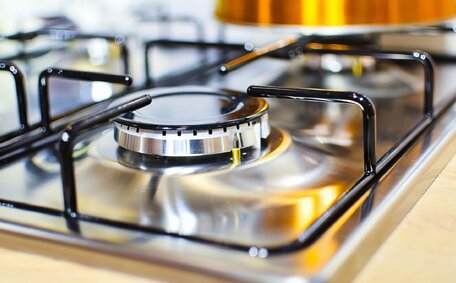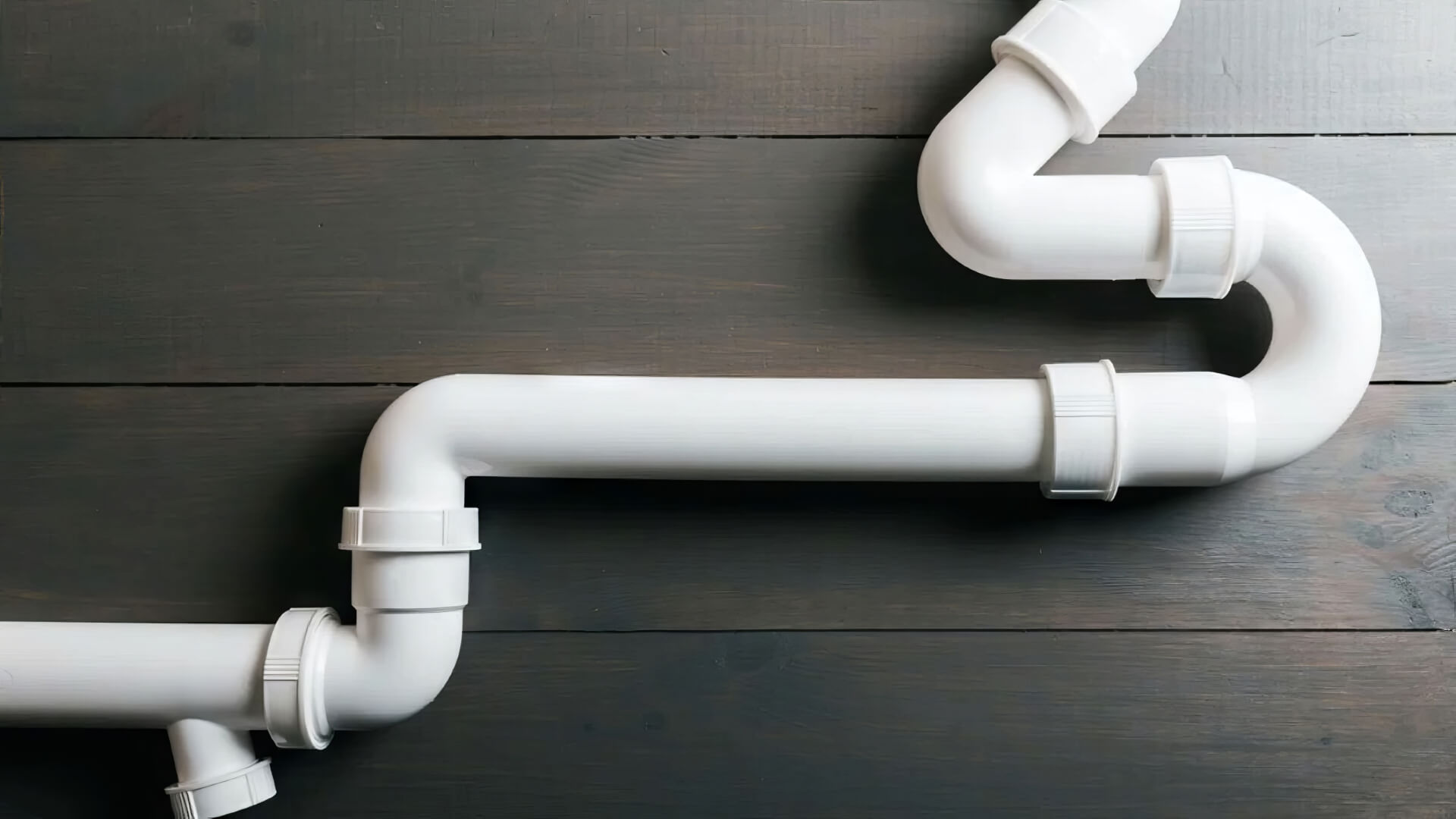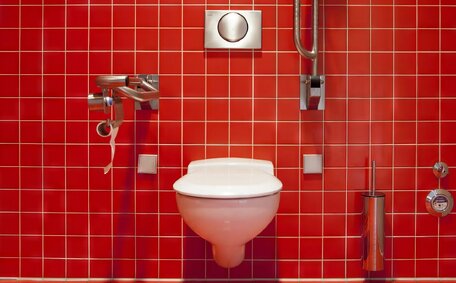Introduction to Smart Water Heaters
Discover the ins and outs of connecting your hot water system to a smart home with our expert guide, tailored to Campbelltown residents. We’ll break down the newest smart technology that pairs with your water heater, leading to cost savings and enhanced convenience.
Hot water has evolved significantly from traditional storage units, paving the way for the integration with modern solar systems. Today’s efficient electric and solar-compatible systems smartly adjust water heating to your usage and electricity supply.
Equipping your home with a solar-compatible PV system such as a heat pump lets you regulate and improve your heating and cooling efficiencies. Added perks include integration with apps like Nest and features like energy monitoring.
We’ll cover compatible systems optimal for smart home connectivity, weigh up the pros and cons, and assess if the upgrade cost makes sense for your household.
Benefits of Connecting Your Hot Water System
Integrating your hot water system with a smart home provides these advantages:
- Energy savings - Heat pump water heaters fine-tune operations, using surplus solar energy to minimise electricity costs. Adopting such energy-smart tactics can save you crucial dollars, all while maintaining an efficiently heated water supply.
- Cost savings - Not only will you save energy, but using smart systems can also save money on bills, granting you authority to temper water heating expenses.
- Convenience - You can turn and adjust the water temperature remotely via app controls rather than manually.
- Control - Efficient hot water usage integrates with smart switches, thermostats, and appliances allowing centralised control.
- Monitoring - Inspect granular data about how your water use affects energy expenditure to make savvy decisions on cost reduction.
- Grid stability - Electric hot water tanks can help stabilise electricity supply through off-peak heating. Rebates are on offer in many areas as a result.
Smart hot water systems deliver cost savings by intelligently moderating water temperature without sacrificing comfort.
Lower Energy Costs
A major benefit of integrating a solar heat pump with your smart home is the potential reduction in energy costs. By absorbing your excess solar power generation, smart heat pumps maximise system efficiency while reducing your energy draw from the grid.
Effectively manage your electricity tariff by programming heat pump water heaters to coincide heating with solar energy production.
In many areas, governments also offer generous rebates for households installing energy efficient electric and heat pump hot water systems. Paired with your smart home technology, the savings and convenience can make upgrading your hot water system a savvy investment.
- Optimised heating schedule - Your existing smart water heater ensures you control hot water supply by aligning with your lifestyle needs.
- Solar self-sufficiency - You can use solar power that’s absorbed for solar hot water heating rather than letting it go to waste.
- Government rebates - Upfront discounts on installation costs for approved electric gas hybrid/heat pump systems.
Syncing heating with solar generation, smart electric systems outperform traditional gas units in efficiency, while your smart home dashboard allows you to track the exact energy used for water heating.
Enhanced Efficiency and Control
Seamlessly connect your water system to your smart home to achieve superior efficiency without the high costs.
Choose a modern electric or heat pump water heater for smart home integration and enjoy the convenience of managing your hot water with intuitive app or voice commands, alongside the assurance of a continuous flow.
Touchscreen interfaces facilitate setting precise temperature parameters for an optimal new water experience, even down to the shower rose. Smart sensors in your water heater smartly regulate the water flow to ensure your hot shower retains the perfect temperature as efficiently as possible.
You can also view graphical analysis of your historical water heating costs and energy consumption. This data transparency ensures that managing your electric hot water becomes an informed decision, helping you to save on the bills.
Upgrading to a smart-enabled electric or heat pump system gives households a degree of water heating customisation that was unimaginable only years ago. For many homeowners, particularly those with systems two or three years old, that upgrade can embody a major leap in comfort, convenience, and control over expenses.
Compatibility Considerations
To ensure a smooth integration of your hot water system with a smart home, assessing compatibility is critical.
- Controller compatibility - Ensure your heater’s WiFi-enabled controllers support remote access and monitoring. You should be able to ensure your system has a compatible controller model.
- Smart metre compatibility - For detailed energy monitoring, a smart metre is recommended. Check it uses a supported communications protocol to interface with your smart ecosystem.
- Internet connectivity - A stable broadband internet connection is required for connectivity. Weak connections can disrupt app control and monitoring.
- Supported devices - Check that your hot water system is validated to work with smart switches, thermostats and other devices in your setup.
Most modern electric and heat pump water heaters readily support smart connectivity with minimal set-up changes. Should you encounter compatibility issues, especially with a hot water cylinder, contact your manufacturer or a trusted local plumber for personalised guidance.
\ - Controller compatibility - Ensure your heater’s WiFi-enabled controllers support remote access and monitoring.
\ - Smart metre compatibility - For detailed energy monitoring, a smart metre is recommended.
\ - Internet connectivity - A stable broadband internet connection is required for connectivity.
\ - Supported devices - Check that your hot water system is validated to work with smart switches, thermostats and other devices in your setup.
\
Electric vs Gas
When weighing up electric versus gas hot water systems in the context of smart home connectivity, both offer advantages and limitations.
Compared to traditional gas heaters, modern electric heat pump water heaters often have superior integration capabilities. Models like Smarttek Black with Their built-in WiFi controllers allow control over a gas hot water system, monitoring and optimisation via home automation platforms and apps. They can also readily absorb excess solar energy when available through a solar hot water system thanks to smart sensors and heating elements.
However, gas solar systems, which rely on gas bottles for backup, currently face greater challenges in smart integration. Even though they represent a budding technology, WiFi-enabled gas controllers are far less mature compared to their electric counterparts. Gas also can’t directly utilise rooftop solar power without an electric boosting element added.
For smart home integration, current electric and heat pump water heaters often provide superior compatibility. Just ensure your specific model and local regulations allow smart integration before upgrading your water heating.
Required Smart Devices
To enable full smart water heater connectivity in your home, incorporating nest learning thermostats is typically beneficial:
- Nest thermostat - Enables app-based temperature adjustments and integration into your smart water heating setup.
- Smart switches/plugs - Let you remotely cut the power for increased safety and operational efficiency.
- Smart sensors - Deliver temperature/usage data to optimally switch hot water heater off when not needed
- Smart energy monitor - Track energy usage and operating costs
- Smart hub/controller - Centralises and automates system control
Integrate these devices to track detailed heating analytics, tailor heating schedules to your lifestyle, and receive alerts about system disruptions.
Integration With Solar Power
Smart water heaters are designed to integrate seamlessly with household solar power systems. This allows them to maximise self-consumption of the free solar energy your rooftop panels generate during sun-peak hours.
Instead of wasting solar energy, a heat pump water heater can harness this power to efficiently heat your water, thus ensuring your solar investment yields a better return.
With capabilities challenging that of dedicated home batteries, storage water heaters fitted with heat pump technology use power diversion to stockpile up to 6kWh of renewable energy. The good news is, that’s a storage capacity eclipse more than 15 times that of a top-tier Tesla Powerwall battery unit, holding 13.5kWh in total.
Thats enough to store the excess generation from a 5kW solar array.
By directing excess solar power for water heating, households can conserve more energy, thus saving significantly on electricity bills and reducing squandered renewable energy exports. For sustainably-minded homeowners it’s a clear win-win situation.
Smart water heaters are designed to integrate seamlessly with household solar power systems. This allows them to maximise self-cothis energy to help heat your household water.
Maximizing Self-Consumption
To maximise the benefits of solar self-consumption, align your water heater’s usage with peak solar generation times, ensuring optimal use of your renewable energy source.
\
Modern installations allow you to harness solar power to heat water and maximise the efficiency of heat pump and electric water heaters with timed programs. This ensures the system prioritises using excess solar heat over grid electricity wherever possible.
\
Monitoring patterns with your stainless steel water heater’s intelligent system can reduce your energy costs by uncovering prime moments for energising solar water heating. You can schedule your stainless-steel water heater through the smart app to utilize excess solar energy during peak sunlight hours for energy-efficient operations.
\
By optimising heating times for solar efficiency, you ensure that water is heated just when needed, resulting in substantial savings on hot water expenses.
Grid Services to Stabilize Supply
Smart electric water heaters with storage tanks can help stabilise the power supply, with demand response features allowing remote activation or deactivation by your energy provider based on renewable energy availability or demand peaks.
During midday sunshine, your water heater can utilise surplus solar power, reducing grid demand. Conversely, during high-demand evening hours, temporarily shutting off your water heater can help alleviate grid stress.
Engaging in your electricity retailer’s demand response programme lets them adjust your hot water tank settings, averting instances where you might run out hot water. In exchange, financial incentives like bill credits or discounts on smart hot water systems may apply. This helps support grid stability while securing savings for savvy homeowners.
Safety and Regulations
When integrating hot water systems with smart home devices, safety and compliance are paramount. In Campbelltown, all electrical and plumbing installations, as advised by your electrician, must comply with Australian Standards and guidelines.
Key safety aspects involve:
- Electrical safety switches to prevent electrocution
- Pressure control valves to avoid dangerous pressure buildup
- Thermostatic tempering valves to prevent scalding
- System certifications confirming gas or electrical compliance
While convenience and efficiency are ideal, we always prioritise safety. Consult licenced tradespeople regarding regulations in your area before proceeding with any upgrades.
Professional Installation
Upgrading to a smart water heating system requires professional installation for optimal performance, safety and longevity. At Campbelltown Plumbing, our licenced technicians have extensive training to configure these complex systems to harness the full capabilities of smart integration.
We take care of the end-to-end process, from advising which smart electric or heat pump system suits your home, to installing and integrating with your preferred smart home platform. With deep expertise servicing Campbelltown since 2001, we ensure full compliance with Australian Standards and council regulations.
For personalised advice on smart water heating upgrades and integration assistance, don’t hesitate to contact Campbelltown Plumbing at 1300 349 338 or email us at [email protected]. We’re your local experts dedicated to ensuring simple, secure, and efficient tech upgrades.
Conclusion
Connecting your hot water system into your Campbelltown smart home enables greater efficiency, cost savings, and seamless control. Modern electric and heat pump water heaters offer robust integration capabilities, which can unlock extensive home automation benefits.
Equipped with rooftop solar panels and a solar-compatible water heater, you can tailor heating schedules to suit your usage patterns and the solar energy output. Comprehensive energy monitoring also offers clarity about operating costs, enabling cost-effective decision-making.
Upgrading your water heater does involve assessing technical compatibility, adhereing to stringent safety standards, and hiring certified tradespeople. Rest assured Campbelltown Plumbing can advise on suitable systems for your property and take care of professional installation as your local specialists.
Discover your options without any obligation by contacting Campbelltown Plumbing at 1300 349 338 or sending an email to [email protected]. Leading the way since 2001, we are dedicated to streamlining your switch to smart water heating.






